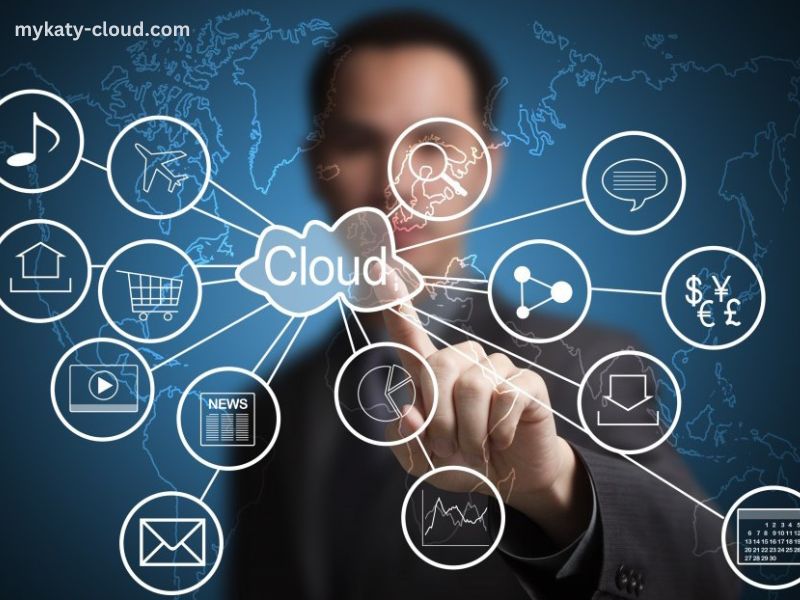In today’s world, where digital transformation is reshaping industries, societies, and personal lives, Information Technology (IT) stands as a cornerstone of this evolution. Information Technology refers to the use of computers, networks, and other electronic devices to store, retrieve, transmit, and manipulate data. It encompasses a broad range of technologies, applications, and systems that facilitate the creation, processing, storage, and exchange of information. This article delves into the various aspects of Information Technology, exploring its history, components, applications, and future prospects.
The Evolution of Information Technology
Information Technology has its roots in the early days of computing. The first significant milestone in IT was the invention of the abacus, an ancient tool used for calculations. However, the modern era of IT began in the mid-20th century with the development of electronic computers. The ENIAC (Electronic Numerical Integrator and Computer), developed in 1945, was one of the first general-purpose computers. It marked the beginning of a new era in which machines could perform complex calculations and data processing tasks faster than any human could.
The 1960s and 1970s saw the advent of mainframe computers, which were large, powerful machines used by businesses and governments for critical applications like financial transactions, record-keeping, and scientific research. The development of microprocessors in the 1970s paved the way for personal computers, bringing computing power to individual users. The IBM PC, introduced in 1981, was a watershed moment in IT, leading to the widespread adoption of personal computers in homes and businesses.
The 1990s brought about the internet revolution, transforming IT into a global phenomenon. The World Wide Web, developed by Tim Berners-Lee in 1989, enabled the easy sharing of information over the internet, leading to the rapid expansion of online services, e-commerce, and digital communication. The turn of the 21st century saw the rise of mobile computing, with smartphones and tablets becoming ubiquitous, further integrating IT into everyday life.
Key Components of Information Technology
Information Technology is a broad field that encompasses several key components, each playing a critical role in the functioning of modern digital systems.
1. Hardware
Hardware refers to the physical components of a computer system. This includes devices such as processors (CPUs), memory (RAM), storage devices (hard drives, SSDs), input devices (keyboards, mice), and output devices (monitors, printers). Hardware is the foundation upon which all IT systems are built, providing the necessary processing power, storage capacity, and interfaces for users to interact with digital systems.
2. Software
Software is the collection of programs, applications, and operating systems that run on hardware and perform specific tasks. There are two main types of software: system software and application software. System software includes operating systems like Windows, macOS, and Linux, which manage hardware resources and provide a platform for running applications. Application software includes programs like Microsoft Office, web browsers, and video games, which perform specific tasks for users.
3. Networks
Networks are systems that connect computers and other devices, allowing them to communicate and share resources. The most common type of network is the Local Area Network (LAN), which connects devices within a limited area, such as a home or office. Wide Area Networks (WANs) cover larger geographic areas and can connect devices across cities, countries, or even continents. The internet is the largest and most well-known WAN, connecting billions of devices worldwide.
4. Databases
Databases are organized collections of data that can be easily accessed, managed, and updated. They are used to store large amounts of information, such as customer records, financial transactions, and inventory data. Database management systems (DBMS) like MySQL, Oracle, and Microsoft SQL Server provide tools for creating, managing, and querying databases.
5. Cloud Computing
Cloud computing is a model of delivering IT resources and services over the internet. Instead of owning and managing physical hardware and software, users can access computing resources on-demand from cloud service providers like Amazon Web Services (AWS), Microsoft Azure, and Google Cloud. Cloud computing offers flexibility, scalability, and cost-efficiency, making it an increasingly popular choice for businesses and individuals.
6. Cybersecurity
Cybersecurity involves protecting IT systems, networks, and data from unauthorized access, attacks, and damage. As the reliance on digital systems grows, so does the importance of cybersecurity. It includes practices like encryption, firewalls, and intrusion detection systems to safeguard sensitive information and ensure the integrity and availability of IT resources.
Applications of Information Technology
Information Technology is pervasive in nearly every aspect of modern life. Its applications span across various sectors, transforming the way we live, work, and interact with the world.
1. Business
IT has revolutionized the business world, enabling companies to operate more efficiently, reach global markets, and innovate rapidly. Enterprise Resource Planning (ERP) systems, Customer Relationship Management (CRM) software, and e-commerce platforms are just a few examples of how IT is used in business. IT also supports data analytics, enabling businesses to make informed decisions based on real-time data.
2. Healthcare
In healthcare, IT plays a critical role in improving patient care, managing medical records, and conducting research. Electronic Health Records (EHRs) have replaced paper records, making it easier for healthcare providers to access and share patient information. Telemedicine, powered by IT, allows doctors to consult with patients remotely, improving access to healthcare services.
3. Education
The education sector has embraced IT to enhance learning and teaching. Online learning platforms, digital classrooms, and educational software provide students with flexible, personalized learning experiences. IT also enables distance education, allowing students to access courses and degrees from institutions around the world.
4. Government
Governments use IT to provide public services, improve transparency, and engage with citizens. E-government initiatives include online portals for tax filing, voting, and accessing public records. IT also supports the management of infrastructure, public safety, and national security.
5. Entertainment
The entertainment industry has been transformed by IT, with digital media, streaming services, and interactive platforms becoming the norm. Music, movies, video games, and social media are all delivered through IT systems, providing consumers with a vast array of content at their fingertips.
6. Finance
In the finance sector, IT is essential for managing transactions, investments, and risk. Online banking, mobile payments, and financial trading platforms rely on IT to function. IT also supports the development of financial technologies (FinTech) like blockchain, which is changing the way financial services are delivered.
The Future of Information Technology
The future of Information Technology is both exciting and uncertain, as emerging technologies continue to push the boundaries of what is possible. Several key trends are likely to shape the future of IT.
1. Artificial Intelligence (AI) and Machine Learning
AI and machine learning are poised to transform IT by enabling computers to perform tasks that traditionally required human intelligence, such as language processing, image recognition, and decision-making. AI-powered systems can analyze vast amounts of data to identify patterns, make predictions, and automate processes, leading to increased efficiency and innovation across industries.
2. Internet of Things (IoT)
The Internet of Things refers to the network of interconnected devices that collect and exchange data. IoT has the potential to revolutionize industries like manufacturing, agriculture, and healthcare by enabling real-time monitoring, predictive maintenance, and automation. As IoT devices become more widespread, the need for robust IT infrastructure and security measures will grow.
3. 5G and Next-Generation Networks
The rollout of 5G networks promises to deliver faster, more reliable internet connectivity, enabling new applications and services. 5G will support the growth of IoT, autonomous vehicles, smart cities, and other technologies that require high-speed, low-latency connections. IT professionals will need to adapt to the demands of these next-generation networks.
4. Quantum Computing
Quantum computing is an emerging field that has the potential to solve complex problems that are currently beyond the capabilities of classical computers. While still in its early stages, quantum computing could revolutionize fields like cryptography, materials science, and drug discovery. IT professionals will need to develop new skills and knowledge to work with quantum systems.
5. Cybersecurity and Privacy
As IT systems become more interconnected and data-driven, the importance of cybersecurity and privacy will continue to grow. Emerging threats like cyberattacks, data breaches, and digital espionage will require advanced security measures and policies. IT professionals will play a critical role in safeguarding digital systems and ensuring the privacy of users.
Conclusion
Information Technology is a dynamic and ever-evolving field that has become integral to modern life. From its early beginnings with electronic computers to the rise of the internet and mobile computing, IT has transformed the way we live, work, and interact with the world. As emerging technologies like AI, IoT, and quantum computing continue to push the boundaries of what is possible, IT will remain at the forefront of innovation and progress. Whether in business, healthcare, education, or entertainment, IT is shaping the future, and its impact will be felt for generations to come.



